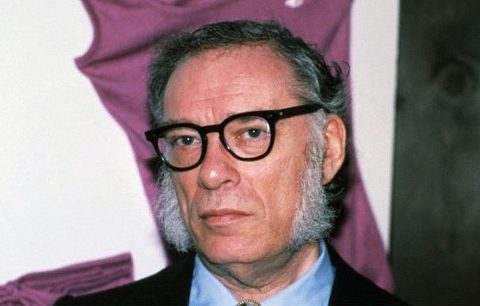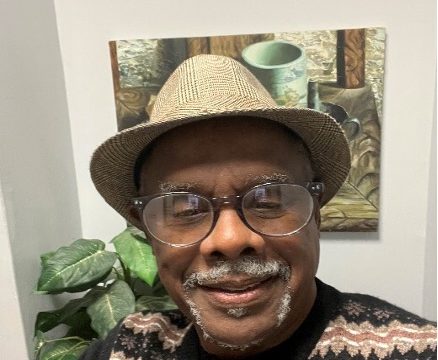

“People who read books, not magazines and newspapers, live two and half years longer than those who don’t read books!”
You could hear a pin drop – a gulp, a chuckle – when Teresa Rice cited that from a Yale University study during a meeting of the 26 Tiny Paintbrushes writer’s guild.
Now before we take a closer look at the research, let’s go down this list of 10 benefits of reading Teresa shared. They are, reading….
- is mental stimulation for your brain
- reduces stress
- increases knowledge
- expands vocabulary
- improves memory
- strengthens analytical skills
- improves focus and concentration
- promotes tranquility
- makes better writing skills
- is a free source of entertainment
“Reading” said Rice – who knows a thing or two about the subject given that she’s surrounded by shelves and shelves of books in her bookstore – is the process of looking at a series of written symbols and getting meaning out of them.
Now there’s recent scientific evidence that reading books can stimulate the brain’s functions. It says that when we read we improve our memory, feel better and become more positive.
Need more convincing?
Well, that science also indicates that reading helps minimize the chances of getting Alzheimer’s later in life and has been found to decrease heart rates and blood pressure.
Now consider me old school, but I love being surrounded by books, the more the better. E-books, no. I side with what Jane Smiley wrote; “Many people, myself among them, feel better at the mere sight of books.”
Here’s another thing; when I enter someone’s home, I’ll scan it for the presence of books whether they be in bookcases, on living room tables and, yes, even in restrooms. My interest is further piqued by what’s in those books and, rightly or wrongly, what this may suggest about the residents.
And if school age kids live there, I wonder if there’s a correlation between the presence – or absence – of books and how well they’re doing in school. I’m left with an inconclusive hunch.
You see, with books in the homes of people I visit, I discover points of connection and conversation starters with residents. Any presence or absence of books sends a message to me and maybe others, although not by intent.
Back to Rice, there’s rarely a day that goes by without my stopping in her bookstore and plopping down in my favorite leather chair and soaking up the intoxicating aura of books. For me, sights to behold are the used books I thumb through with handwritten notes in the margins or entire paragraphs highlighted in yellow by the previous owner.
Now just so you’ll know, I gave Kindle a try, but Kindle wasn’t for me. I must have a book in my hand. My addiction to books is, well, just that, an addiction. So it should come as no surprise that my blood pressure shoots up whenever I hear any nonsense about some jurisdictions banning books, often by people who have absolutely no clue about the books’ contents. Wrote Joseph Brodsky, “There are worse crimes than banning books. One of them is not reading them.”
Now to be clear, I do support making the choice of books based on age-appropriateness but I draw the line in banning books by, say, Dr. Seuss, James Baldwin, Toni Morrison, Ibram X. Kendi, or stories about Ruby Ridge, because they make a 10th grader “uncomfortable.” So I add this to Teresa’s list of benefits of reading books…developing one’s inclusion IQ. Here’s why.
Reading books helps you to be more open-minded and inclusive. When you understand another person’s story, you improve your attitude towards people who are culturally different from you. So opening books can open your mind to understanding different life experiences and minimize the negative perceptions – many unconscious – you have towards others. Those who read about the oppression of groups of people are more inclusive, decisive and rarely discriminate against others.
A 2018 USA survey showed that a stunning 24% of adults had not read any part of a book in the previous year. But it doesn’t mean those adults didn’t want to read—often busy lives just got in the way.
One the flip side, one of the biggest challenges for people who read a lot – count me among them – is dealing with those who don’t. And I’m not alone.
“Thanks, Terry for asking me how I read. I’m okay with reading hard cover books or E-books,” said Charles. “But my problem is conversing with people who don’t read. Those conversations lack depth, so I try to avoid or end them respectfully.”
“It does not take me long to size up those who read and those who don’t,” said Warren. “Their vocabulary is the first clue.”
Said Charlotte, “Your attention to this issue is so timely. I’ve visited bookstores recently and on those occasions the stores were not exactly overrun with customers. That’s also what I’ve observed in local libraries.”
“Often when I visit the homes of family and friends with kids, I see those kids glued to tablets, sometimes even during dinner,” said Charlotte. “Now as much as I’d like to say that it’s books they’re reading, no, most of the time it’s the latest video game.”
I’ll end with a quote from Dr. Seuss; oh yes, “that” Dr. Seuss!
“The more that you read, the more things that you will know. The more that you learn, the more places you’ll go.”
Just saying….
© Terry Howard is an award-winning speaker, writer and storyteller. He is a contributing writer with the Chattanooga News Chronicle, The American Diversity Report, The Douglas County Sentinel, TheBlackmarket.com, co-founder of the “26 Tiny Paint Brushes” writers’ guild, recipient of the 2019 Dr. Martin Luther King Leadership Award and 3rd Place winner of the 2022 Georgia Press Award.



